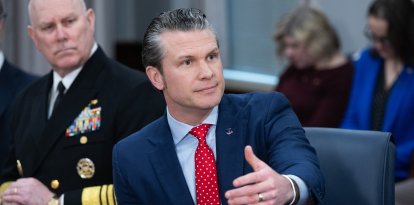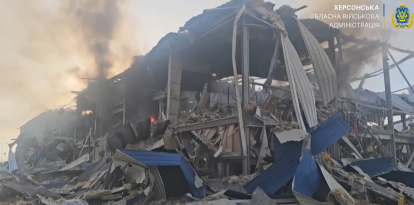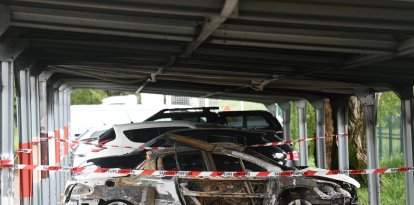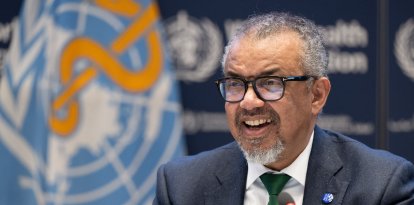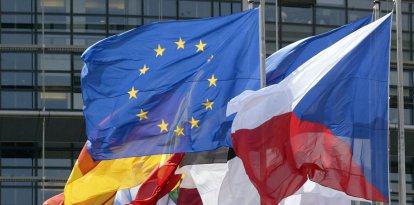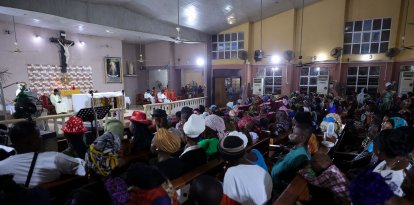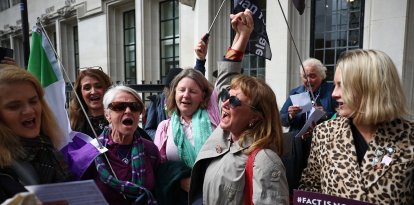Pedro Sánchez is once again sworn in as President of the Government of Spain
The socialist candidate has gathered the support of communists, separatists and parties convicted of terrorism in the midst of an unprecedented attack on the rule of law.
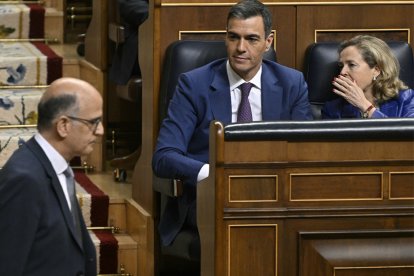
(JAVIER SORIANO / AFP)
Pedro Sánchez will once again be the President of the Government of Spain after having obtained 179 favorable votes in the investiture session held this Thursday in the Spanish Parliament. The Spanish Congress of Deputies is made up of 350 parliamentarians, so to be president at least 176 votes are necessary.
The President of the Government has successfully united parliamentarians across a broad spectrum, ranging from the extreme left to supporters and defenders of ETA terrorism. This group, historically linked to decades of violence in Spain, is responsible for the deaths of a thousand people.
However, one of the most costly supports for the Spanish Socialist Party to reissue its Government has been that of the Catalan separatist movement. To get the seven votes he needs to govern, President Pedro Sánchez needed to present a that would accelerate the process of forgiving all those who carried out the coup d'état in Catalonia in 2017. This was, without a doubt, one of the most controversial aspects that caused thousands of Spanish citizens to take to the streets to protest in recent days in the midst of unprecedented police repression in the history of Spanish democracy.
A path of uncertainty for Spain
The forces of the Spanish right did not even manage to present an effective candidacy for the presidency despite the electoral victory of the Popular Party last July. The internal division in the Spanish right and an unprecedented attack on opponents mark a path of uncertainty for Spain, a country that in the last four years of social-communist government has fallen in all economic, social and democratic quality indices.
In fact, the investiture session held between Wednesday and Thursday in the Spanish Parliament left some authoritarian nods from the leaders of the Congress of Deputies who have control of the Chamber. On repeated occasions, the Presidency of the Chamber withdrew the right-wing deputies who denounced the existence of a new coup d'état in Spain from speaking. The president of Congress, Francina Armengol, even demanded that the words of the leader of the conservative VOX party, Santiago Abascal, in which he denounced the plot to end the rule of law in Spain, be deleted from the session diary.
Furthermore, beyond the controversial amnesty law, the Spanish Socialist Party and its allies continue to keep secret the agreements they have reached with other parliamentary groups to obtain their favorable vote in the investiture. Spanish society is especially afraid of the secret agreements with Bildu, a separatist party from the Basque Country that has among its ranks many convicted of terrorist crimes and that has now become a fundamental piece for the stability of President Pedro Sánchez.
Meanwhile, left-wing parliamentarians continue to criminalize demonstrators protesting in the streets against the alleged coup d'état. However, those who are suffering violence due to the silence of a large part of the Spanish media are some right-wing politicians. A few days ago, a conservative mayor of the Popular Party had to be admitted to the hospital after being attacked by a mob of socialist militants. Shortly before, the right-wing politician in the middle of the street in the capital of Spain, Madrid, which almost cost him his life.
RECOMMENDATION

